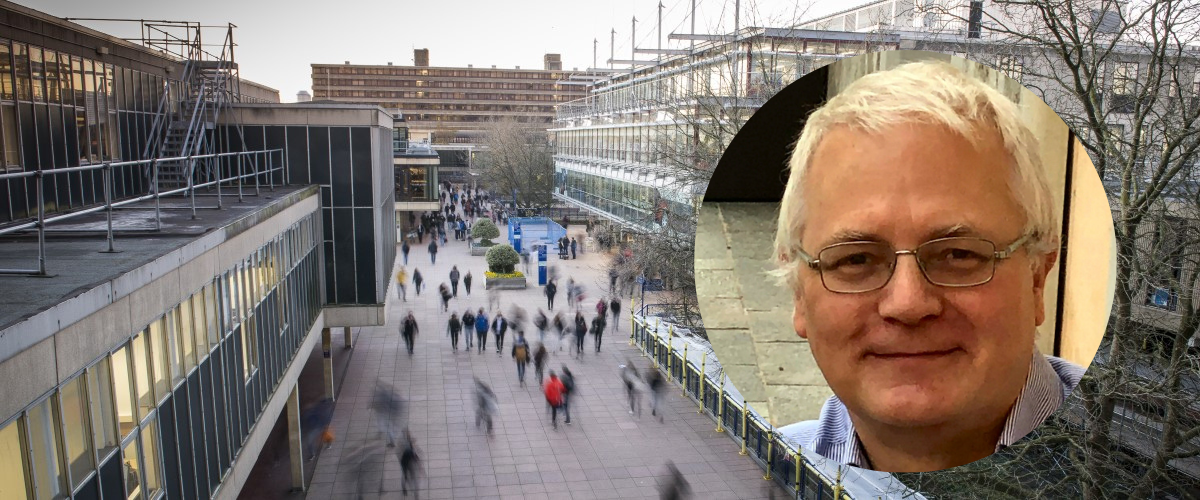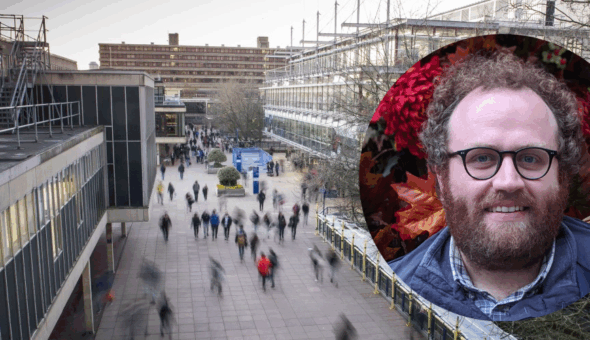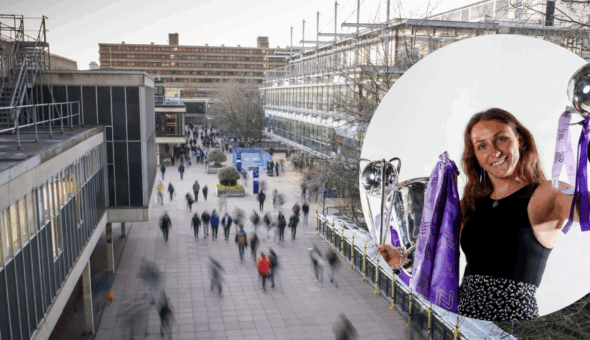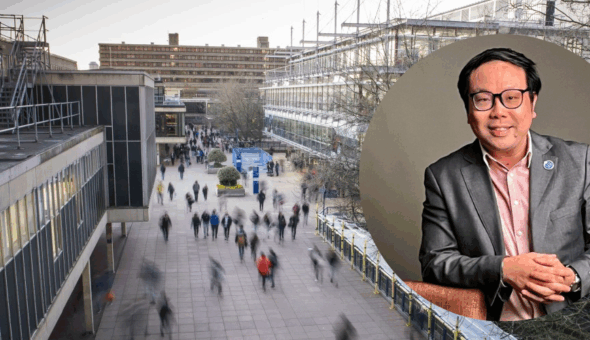What began with a decision to study Electrical & Electronic Engineering led to a career in computer graphics, software development, and international adventures he never expected to take.
From painting in the Arts Barn to designing award-winning programs, Owen’s story shows how curiosity – and a chance advert spotted in the library – can open doors to opportunities across the world.
Why did you choose to study at Bath?
The Electronics course looked good, and it was nice that the campus was not in the middle of a city. In those days, students tried to study as far away from home as possible. I also liked that the accommodation for students was well organised.
Can you tell us about your experience of studying here?
Most of the teachers were likable and many made jokes, which made the learning easier. I particularly remember a maths teacher who rode up the hill from Bath every day. He liked making us laugh and was very good at explaining the maths needed for electronics. I remember Z-Transforms, mysterious but useful.
Were you part of any societies or sports clubs during your time at Bath?
I used to go to the Arts Barn to paint. I was usually alone; there were not many aspiring artists around then!
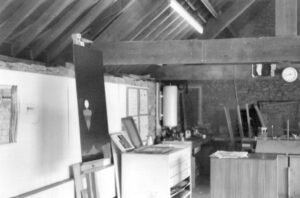
Describe your career journey since graduating.
In my final year, when I was in the library, I saw an ad for scholarships from the Japanese government to study in Japan after graduation. I applied, got in, and was sent to Osaka to learn Japanese and to Yokohama to study image processing.
I oscillated a bit between Japan and the UK after finishing university in Yokohama. A friend and I founded a computer animation company called Concurrent Images KK. We were based in Tokyo and got a few good jobs, including Gillette, TBS Broadcasting, Coca-Cola and McCann-Erickson. Ultimately, it was not economically successful.
In the meantime, I'd met my future wife, who was also on a Japanese scholarship, and in the end, we settled in Milano, Italy. There, I designed graphics boards for early PCs and slowly moved into the software of computer graphics.
My program Repligator won the Shareware Industry Awards Foundation prize for Best Graphics Program of 1999.
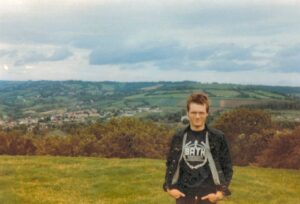
I now divide my time between software for CAD/CAM and software for illumination and lighting calculations.
What do you enjoy most about your career? Has anything surprised you?
I'm really surprised that I went to Japan and then ended up in Italy. I'd always been a non-traveller type of person. But I'm glad I did those two things! It all started in the library!
How did your studies help you develop professionally and/or personally?
My final year project was a computer graphics board. The first of several I would design. At Bath, I met some great people and made some good friends, and I'm still in touch with some of them.
My first placement was a bit grim, but the following were great, with Pulse Electronics (Avionics) Ltd, in Bedfordshire. That’s where I started to learn about graphics software and designed my second graphics board.
You volunteer on Bath Connection – could you tell us why you give back to Bath in this way?
Some people lack confidence, but only because they come from what is sometimes perceived as the "wrong" background. I'd like to encourage these students. We cannot throw away talent because of poverty or difficult circumstances.
What advice would you give to prospective students considering studying your course at Bath?
You must be enthusiastic about what you want to study. Studying is not easy, but it is rewarding. And Bath is a great place for that.
Respond
